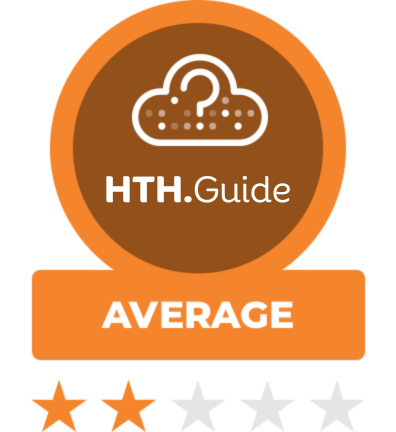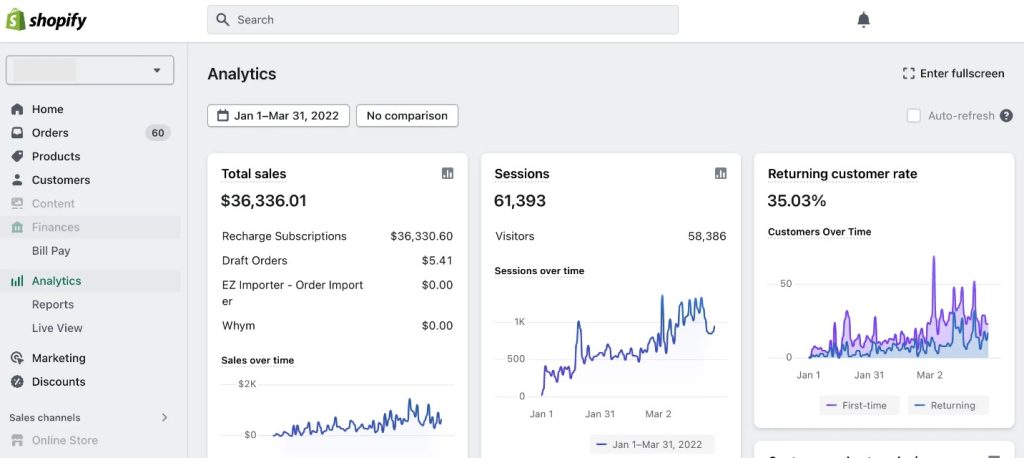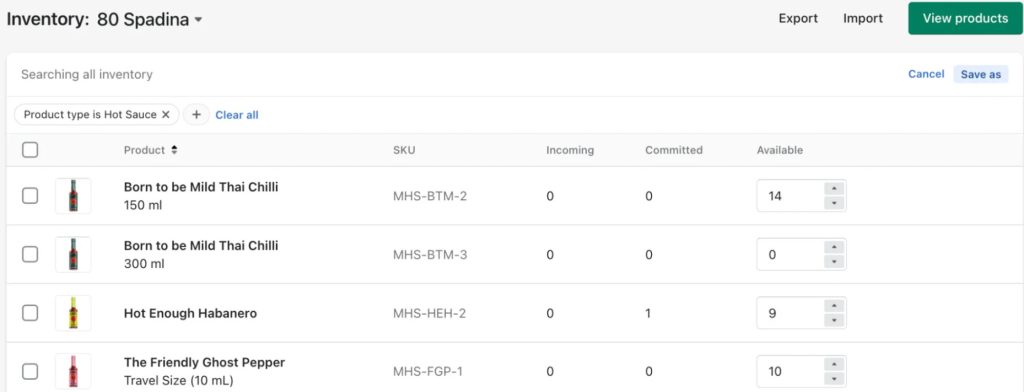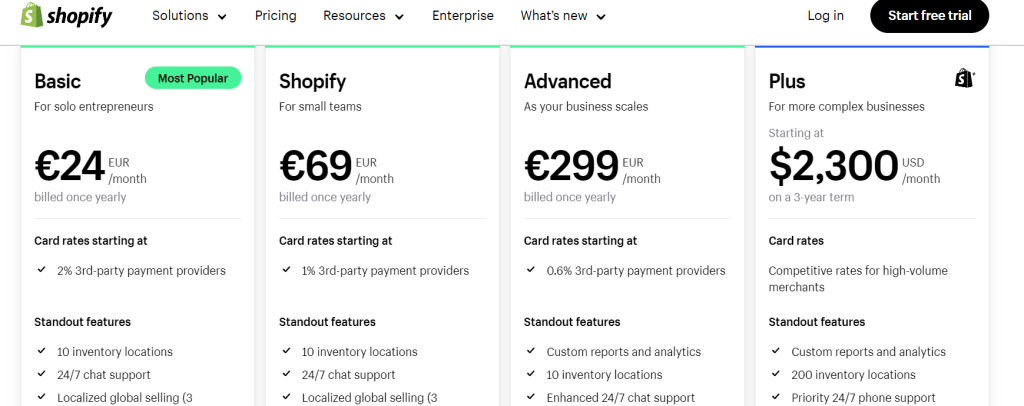On This Page: [hide]
As we step into 2025, Shopify emerges as a beacon for aspiring and established e-commerce merchants alike, owing to its comprehensive set of features and ease of use. This platform not only simplifies online store setup and management for entrepreneurs regardless of their technical savviness but also offers scalability and reliability that are hard to match. With its integration of cutting-edge technologies and a vast app ecosystem, Shopify ensures businesses of all sizes can thrive in the competitive online marketplace. Whether you’re a newbie setting foot in the e-commerce world or a seasoned player aiming to elevate your online presence, this article walks you through why Shopify continues to be a favored choice in 2025.
 Visit Site
Visit Site 
| Name | Shopify |
| Total Reviews | 3382 |
| Average Score | 1.5 |
| Website | http://shopify.com |
| Server Locations | |
Number of Reviews
Avg. Review Score
Customer Support
What Makes Shopify Stand Out in 2025?
As we dive into 2025, Shopify continues to distinguish itself as a formidable force in the e-commerce platform space. Its comprehensive suite of features tailored for both novices and seasoned entrepreneurs alike makes it a go-to choice. Shopify holds a unique position thanks to its blend of user-friendly design, extensive customization options, and powerful sales tools. Moreover, the platform’s forward-thinking approach to integrating advanced technologies like AI and its diverse app ecosystem ensures businesses stay ahead in the competitive digital marketplace.
Why Entrepreneurs Choose Shopify for their Online Stores
Entrepreneurs are increasingly drawn to Shopify for several compelling reasons. First and foremost, its simplicity and ease of use allow individuals with minimal tech experience to launch their online stores swiftly. The platform provides a wide array of professional-looking themes and templates, making it easy to create aesthetically pleasing sites without the need for extensive design knowledge. Also, Shopify’s robust infrastructure supports a myriad of business models, including dropshipping, which has gained popularity among those looking to minimize upfront investments. Its comprehensive analytics dashboard also empowers business owners with insights to fine-tune their operations and grow their customer base.
Shopify’s Unique Selling Proposition in the E-commerce Platform Arena
Shopify’s unique selling proposition lies in its unparalleled versatility and scalability. Unlike many of its competitors, Shopify serves a wide spectrum of users—from individuals launching their first venture to large enterprises seeking to innovate and expand their online presence. The platform’s scalability is seamless, allowing businesses to grow their operations without having to switch to a new system. This eliminates the potential hurdles and disruptions that can come with migrating to a more robust platform. Furthermore, Shopify’s commitment to security, exemplified by its robust encryption and compliance with PCI standards, ensures that business owners can focus on growth without compromising their customers’ trust.
Unveiling Shopify: Core Features and Benefits
Shopify stands out as a comprehensive solution for businesses looking to launch, manage, and grow their online stores. With a wide range of features tailored to meet the needs of modern e-commerce, Shopify simplifies the process of building a thriving online presence. Let’s explore the core features and benefits that make Shopify a go-to platform for entrepreneurs worldwide.
Comprehensive Overview of Shopify’s E-commerce Tools and Services
Shopify offers an all-encompassing suite of tools and services designed to facilitate every aspect of e-commerce management. From setting up your online store with visually appealing themes to managing your products, orders, and customer interactions, Shopify provides a seamless experience. Its intuitive interface empowers users to focus on sales and growth without getting bogged down by the complexities of online store development.
User-Friendly Interface and Dashboard Insights
The Shopify dashboard is a highlight, offering a user-friendly interface that gives you an instant overview of your store’s performance. With features like sales analytics and customer behavior insights, the dashboard enables you to make informed decisions, track your progress, and identify areas for improvement. Its straightforward design ensures that even those with minimal technical expertise can navigate through the complexities of e-commerce with ease.

A Deep Dive into Shopify’s Inventory Management Capabilities
Effective inventory management is crucial for any e-commerce business, and Shopify excels in this area. The platform allows for real-time tracking of stock levels, orders, and deliveries, ensuring you can manage your inventory efficiently. Whether you sell a handful of products or thousands, Shopify’s scalable solution adapts to your business needs, simplifying the process of inventory control and helping to avoid stockouts or overstock situations.

- Shopify reviews from United States
| Average score | 1.35 |
| Number of reviews | 1129 reviews |
- Shopify reviews from United Kingdom
| Average score | 1.46 |
| Number of reviews | 484 reviews |
- Shopify reviews from Italy
| Average score | 1.35 |
| Number of reviews | 351 reviews |
- Shopify reviews from France
| Average score | 1.50 |
| Number of reviews | 202 reviews |
- Shopify reviews from Netherlands
| Average score | 1.51 |
| Number of reviews | 190 reviews |
- Shopify reviews from Denmark
| Average score | 1.70 |
| Number of reviews | 189 reviews |
- Shopify reviews from Canada
| Average score | 1.55 |
| Number of reviews | 178 reviews |
- Shopify reviews from Spain
| Average score | 1.38 |
| Number of reviews | 127 reviews |
- Shopify reviews from Germany
| Average score | 1.77 |
| Number of reviews | 116 reviews |
- Shopify reviews from Australia
| Average score | 1.44 |
| Number of reviews | 108 reviews |
- Shopify reviews from India
| Average score | 1.53 |
| Number of reviews | 96 reviews |
- Shopify reviews from Sweden
| Average score | 1.79 |
| Number of reviews | 43 reviews |
- Shopify reviews from Belgium
| Average score | 1.00 |
| Number of reviews | 36 reviews |
- Shopify reviews from United Arab Emirates
| Average score | 1.62 |
| Number of reviews | 29 reviews |
- Shopify reviews from Switzerland
| Average score | 1.39 |
| Number of reviews | 28 reviews |
- Shopify reviews from Ireland
| Average score | 1.00 |
| Number of reviews | 27 reviews |
- Shopify reviews from Pakistan
| Average score | 1.92 |
| Number of reviews | 26 reviews |
- Shopify reviews from Portugal
| Average score | 1.83 |
| Number of reviews | 24 reviews |
- Shopify reviews from Morocco
| Average score | 1.43 |
| Number of reviews | 21 reviews |
- Shopify reviews from South Africa
| Average score | 1.55 |
| Number of reviews | 20 reviews |
- Shopify reviews from Norway
| Average score | 1.26 |
| Number of reviews | 19 reviews |
- Shopify reviews from New Zealand
| Average score | 1.00 |
| Number of reviews | 18 reviews |
- Shopify reviews from Turkey
| Average score | 1.47 |
| Number of reviews | 17 reviews |
- Shopify reviews from Czech Republic
| Average score | 2.57 |
| Number of reviews | 14 reviews |
- Shopify reviews from Hong Kong
| Average score | 1.38 |
| Number of reviews | 13 reviews |
- Shopify reviews from Brazil
| Average score | 1.73 |
| Number of reviews | 11 reviews |
- Shopify reviews from Poland
| Average score | 1.00 |
| Number of reviews | 11 reviews |
- Shopify reviews from Austria
| Average score | 1.80 |
| Number of reviews | 10 reviews |
- Shopify reviews from Ukraine
| Average score | 2.49 |
| Number of reviews | 9 reviews |
- Shopify reviews from Philippines
| Average score | 1.57 |
| Number of reviews | 7 reviews |
Seamless Integration with Multiple Payment Gateways
Shopify’s flexibility extends to its integration with a wide range of payment gateways, including Shopify Payments, PayPal, and Stripe, among others. This flexibility ensures that customers worldwide can make transactions smoothly, enhancing the shopping experience and potentially boosting sales. Shopify also offers additional security measures to protect both store owners and customers, making transactions safe and reliable.
Exploring Shopify’s Marketing and SEO Toolkit for Online Success
To succeed in the competitive e-commerce landscape, effective marketing and search engine optimization (SEO) are key. Shopify provides a robust toolkit that includes SEO features to help your store rank higher in search results and marketing tools to reach your target audience through various channels. From optimizing product descriptions for search engines to creating engaging social media campaigns, Shopify’s built-in tools are designed to increase your store’s visibility and attract more customers.
The Power of Shopify’s App Store: Extending Functionality with Ease
One of Shopify’s most striking features is its expansive App Store, which houses over 6,000 apps that can enhance your store’s functionality. Whether you’re looking to add customer reviews, improve email marketing campaigns, or offer live chat support, Shopify’s App Store has you covered. These apps integrate seamlessly with your Shopify store, allowing you to extend its capabilities and customize your ecommerce experience to match your business’s unique needs.
Shopify Pricing Structure: What You Need to Know
Choosing the right platform for your online store is crucial, and understanding Shopify’s pricing structure is a great place to start. Shopify offers several plans to cater to different needs, from small startups to large enterprises. Each plan comes with specific features that could be perfect for your business, but at different price points. Navigating through these options allows you to balance your budget with your requirements effectively.
- Bandwidth Unlimited
- Panel cPanel
- Number of Sites Unlimited
- Bandwidth Unlimited
- Panel cPanel
- Number of Sites Unlimited
- Bandwidth Unlimited
- Panel cPanel
- Number of Sites Unlimited
- Bandwidth Unlimited
- Bandwidth Unlimited
Breaking Down Shopify’s Pricing Plans: From Basic to Advanced
Shopify simplifies e-commerce for merchants by offering varied pricing plans. Let’s break down each plan:
- Starter Plan: At $5 per month, this is the most affordable option. It’s ideal for sellers who focus on marketing products on social media. However, the features are limited.
- Basic Shopify: Priced at $39 per month, this plan offers more comprehensive tools for a growing business, including theme editing and blogging capabilities.
- Shopify: At $105 per month, this plan enhances your store with standard analytics reports and more substantial shipping discounts.
- Advanced Shopify: For $399 per month, you gain access to advanced reports and even lower transaction fees, supporting large-volume sales efficiently.

Beyond these, Shopify Plus offers a custom pricing structure starting at $2,300 per month, aimed at high-volume merchants and enterprises. This flexibility ensures that as your business grows, Shopify can grow with you. Keep in mind, paying annually can unlock a significant discount, stretching your dollar further.
Exclusive Deals and Offers: Maximizing Value with Shopify’s Latest Promotions
Shopify’s commitment to supporting businesses of all sizes is evident in its exclusive deals and offers. From the free trial that kicks things off to the innovative credits system giving 1% of sales revenue back, there are many ways to maximize value. Signing up for Shopify’s email newsletters or following them on social media can keep you in the loop for new promotions and offers, ensuring you never miss a chance to save.
The Pros and Cons: A Balanced View on Shopify
The Advantages of Launching Your Store with Shopify
Unmatched Ease of Use and Store Setup
One of Shopify’s most praised features is its user-friendly platform, making it easier for anyone to launch an online store. The setup process is straightforward, requiring no advanced technical knowledge. From selecting themes to adding products, Shopify guides users through each step with an intuitive interface. This ease of use extends to managing inventory, setting up payment gateways, and adjusting shipping settings, ensuring entrepreneurs can focus on growing their business rather than wrestling with complicated software.
Robust Security Features to Protect Your Online Presence
Security is a top priority for any online store, and Shopify does not disappoint. It offers robust security features, including SSL certification for secure transactions and PCI compliance to handle credit card information safely. Regular security updates protect against new threats, keeping customer data safe.
Extensive Customization Options and Themes
Shopify’s extensive library of themes allows businesses to create a store that truly reflects their brand. These themes are not only visually appealing but also fully responsive, ensuring a seamless shopping experience on any device. Beyond the aesthetics, Shopify’s platform supports extensive customization through its app store, where you can find tools for every need, from email marketing to inventory management. This level of customization ensures that businesses can tailor their storefronts to meet unique needs, enhancing the customer experience and driving sales.

Considerations and Limitations When Using Shopify
Navigating Shopify’s Transaction Fees
While Shopify offers a wealth of features, it’s important to consider the costs. Shopify charges transaction fees for each sale unless you use Shopify Payments. These fees can add up, especially for stores with high sales volumes. It’s crucial for store owners to factor in these costs when pricing products and forecast a financial plan to ensure profitability. However, keep in mind that Shopify’s extensive feature set might offset these costs through increased sales and operational efficiencies.
Limited Content Management Capabilities
Shopify primarily focuses on ecommerce, and while it provides blogging features, its content management capabilities are somewhat limited compared to dedicated content management systems. For businesses that rely heavily on content marketing, this might present a challenge. However, many choose to integrate Shopify with other platforms or use apps to extend its capabilities, striking a balance between powerful ecommerce functionalities and robust content marketing strategies.
The Dependency on Apps for Advanced Features
Shopify’s core offers a comprehensive set of tools for store setup and management, but for more advanced features, there’s a heavy reliance on third-party apps. While this ecosystem of apps allows for extensive functionality, it can also lead to increased monthly costs as each app may carry its own subscription fee. Furthermore, integrating multiple apps can sometimes slow down site performance, impacting user experience. It’s essential to carefully select apps that genuinely add value to your store and keep an eye on overall performance and costs.
Shopify Compared: Evaluating Alternatives
In the swiftly evolving world of e-commerce, choosing the right platform for your online store has become crucial. Shopify stands out as a popular choice, but it’s not the only option available. In this discussion, we delve into how Shopify stacks up against its competitors, focusing on BigCommerce, WooCommerce, and Magento. Our aim is to help you decide which platform is best suited to your business needs in terms of scalability, customization, and overall features.
Shopify vs. BigCommerce: Which Platform Suits Your Needs?
When comparing Shopify and BigCommerce, it becomes evident that both platforms cater impressively to e-commerce businesses. Shopify, known for its user-friendly interface, makes it easy for beginners to set up and manage their online stores. Its starting price is $29 per month, with a basic plan offering robust sales features, excellent inventory management, and multi-channel selling capabilities. On the other hand, BigCommerce, starting at $39 per month, positions itself as a closely matched competitor with no extra transaction fees, a strong app ecosystem, and unlimited product offerings. BigCommerce shines with its advanced SEO tools and complex customization options, making it ideal for larger businesses aiming for expansion.
Shopify versus WooCommerce: Picking the Right E-commerce Giant
Shopify and WooCommerce offer two distinct paths into the e-commerce world. Shopify, a fully hosted platform, offers a straightforward solution for business owners to launch their online stores without worrying about the technical aspects of website management. WooCommerce, on the other hand, is a free, open-source plugin for WordPress that turns a website into a powerful e-commerce store. This flexibility allows for extensive customization and control over the store, but it requires a more hands-on approach in terms of hosting, security, and maintenance.
If you’re starting from scratch or prefer a hassle-free option with comprehensive support, Shopify’s out-of-the-box functionality makes it an attractive choice. Conversely, if you already have a WordPress website or need a highly customized e-commerce solution and don’t mind the additional legwork, WooCommerce could be your best bet.
Comparing Shopify and Magento for Scalability and Customization
For businesses planning to scale rapidly, both Shopify and Magento offer strong platforms, but with different appeals. Shopify provides a straightforward, user-friendly approach, with various plans to accommodate growth. Its simplicity, however, comes at the cost of less control over the deeper aspects of customization and functionality. Magento, now Adobe Commerce, caters to large businesses and enterprises requiring a high degree of customization and control over their e-commerce environment. It’s a powerful platform offering unparalleled flexibility and scalability but requires significant technical skill or resources to manage effectively.
Determining if Shopify is the Right Fit for Your E-commerce Venture
Deciding on the ideal e-commerce platform for your business can feel overwhelming, given the multitude of options available. However, Shopify stands out for its blend of simplicity and expansive feature set, catering to a wide array of needs. Whether you’re embarking on your first online enterprise or seeking to transition an established business to a new platform, understanding Shopify’s core strengths and potential limitations is crucial.
Is Shopify the Best Platform for Beginners and Small Businesses?
For newcomers to e-commerce and small businesses aiming for an online presence, Shopify emerges as a top contender. Its user-friendly interface allows individuals with zero coding skills to set up and customize their online store with ease. Enhanced by a comprehensive application library, Shopify enables users to extend functionality effortlessly. However, considering Shopify’s pricing plans and transaction fees is essential for small businesses to ensure it aligns with their budget constraints.
- User-Friendly: Shopify’s intuitive setup process and drag-and-drop store builder make it especially appealing for beginners.
- Customization: With a variety of themes and the Shopify App Store, tailoring your e-commerce site to your specific vision is straightforward.
- SEO and Marketing Tools: Shopify comes with built-in SEO features and marketing tools to help your store get discovered by more customers.
Key Considerations for Large Enterprises Before Choosing Shopify Plus
Large enterprises contemplating Shopify Plus can anticipate a platform capable of handling significant volumes of transactions and offering advanced features tailored to substantial operations. Nevertheless, it’s vital to evaluate Shopify Plus against other enterprise-level e-commerce solutions to ensure it best matches your company’s scalability needs, technical requirements, and budget.
- Scalability: Shopify Plus is designed to scale with your business, accommodating high traffic volumes and complex sales processes.
- Advanced Features: Enhanced reporting, dedicated support, and greater customization capabilities distinguish Shopify Plus, catering to the unique demands of large businesses.
- Cost Consideration: While Shopify Plus provides a robust e-commerce solution, the pricing structure means businesses need to assess the return on investment carefully, considering the platform’s monthly fees and transaction costs.
Extended FAQs: Answering Your Shopify Queries
The Most Common Questions About Starting with Shopify
Stepping into the e-commerce arena with Shopify is an exciting venture for many beginners. The most common questions revolve around the ease of use, cost, and features. Shopify is known for its user-friendly interface, making it suitable for individuals without a technical background. The platform provides a variety of plans that cater to different business sizes and needs, from small startups to large enterprises. Features include customizable templates, an extensive app store for enhancing functionality, and 24/7 customer support.
Shopify and E-commerce Trends in 2024: What to Expect
In 2024, e-commerce is expected to continue evolving with greater integration of artificial intelligence and augmented reality to enhance the shopping experience. Shopify is at the forefront, adopting these technologies to help businesses provide personalized experiences to their customers. Another trend is the growing importance of sustainability in consumer choices, prompting Shopify to offer tools for businesses to showcase their environmental initiatives. Additionally, mobile commerce will play a larger role, with Shopify providing mobile-optimized themes and features to capture this market.
Maximizing Your Shopify Trial: Tips and Tricks for New Users
- Explore the Dashboard: Start by familiarizing yourself with the Shopify dashboard. It’s user-friendly and provides access to all the features you need to set up your store.
- Customize Your Store: Make use of Shopify’s customizable templates to reflect your brand identity. Experiment with different layouts and designs.
- Add Products: Begin adding products to your store. Include high-quality images and detailed descriptions to entice shoppers.
- Set Up Payments: Shopify offers its own payment gateway, Shopify Payments, which is easy to set up and use. Moreover, explore other payment options available in your region to accommodate more customers.
- Test Your Store: Before your trial ends, test your store’s functionality. Place a few test orders to ensure the checkout process is smooth.
- Explore Additional Features: The Shopify App Store contains numerous apps to enhance your store’s capabilities. Use your trial period to test out apps that could benefit your business.
- Seek Help When Needed: If you encounter any challenges, Shopify’s customer support and forums are excellent resources. Don’t hesitate to use them.

Final Thoughts on Shopify
After a deep dive into Shopify’s offerings, advantages, and limitations, it’s clear that the platform continues to stand out in the bustling market of e-commerce solutions. Shopify provides a user-friendly interface, comprehensive features for store management, and a range of pricing plans designed to cater to businesses at every stage of growth. From its robust inventory management to seamless payment processing, Shopify equips merchants with the tools they need to build and scale their online stores efficiently.
However, it’s also important to note the concerns raised by users, such as the reliance on additional apps for extended functionality, which can increase costs, and the platform’s limitations in blog management compared to dedicated Content Management Systems (CMS). Despite these aspects, the general consensus among users remains overwhelmingly positive, highlighting Shopify’s ease of use, quality customer support, and the rich ecosystem of apps and themes that enhance store functionality and design.
In conclusion, the value Shopify brings to the table—backed by positive user experiences, affordability, and a comprehensive suite of features—solidifies its status as a leading e-commerce platform in 2025. While it’s beneficial to consider Shopify in the context of your specific needs and possibly explore alternatives, for many, Shopify remains synonymous with e-commerce success.
